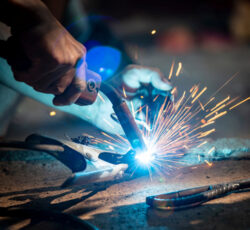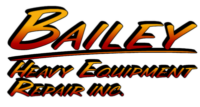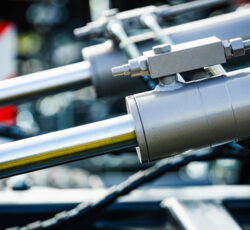Different types of Welding
 Different types of Welding
Different types of Welding
Welding is a critical process that is used to join metal parts or pieces together. The process of welding involves melting the metal parts and allowing them to cool and solidify. There are various types of welding that are used in industrial and commercial applications. Each of these welding types has its unique process, advantages, and disadvantages. In this blog post, we will discuss the different types of welding that are commonly used.
1. Arc welding
Arc welding is the most common type of welding and is widely used in industrial applications. This type of welding uses an electric arc to produce heat, which melts the metal parts to be joined. The electric arc is generated between an electrode and metal parts to be joined.
There are several subtypes of arc welding, including shielded metal arc welding (SMAW), gas metal arc welding (MIG), and flux-cored arc welding (FCAW). SMAW is the oldest and simplest form of arc welding, and it uses a consumable electrode that is coated with flux to protect the weld from atmospheric contamination.
MIG welding, also known as gas metal arc welding (GMAW), is a welding process that uses a continuous wire electrode that melts and fuses with the metal parts to be joined.
FCAW welding is another type of arc welding that is similar to MIG welding but uses a flux-cored wire instead of a solid wire.
2. Gas welding
Gas welding is a welding process that uses a flame produced by a mixture of fuel gas and oxygen to melt and join metal parts. This welding method is commonly referred to as oxy-fuel welding. The two most common types of gases used in gas welding are acetylene and propane.
Gas welding is commonly used to weld thin sheets of metal, repair equipment, and for brazing. One significant advantage of gas welding is that it produces a relatively soft and malleable weld, which is ideal for welding thin metal sheets.
3. Resistance welding
Resistance welding is a welding process that uses electric resistance to join metal parts together. The two most common types of resistance welding are spot welding and seam welding.
Spot welding is a welding process that involves joining two metal sheets together at discrete points. This type of welding is commonly used in the automotive industry to join sheet metal parts.
Seam welding, on the other hand, is a continuous welding process that involves joining two metal sheets along a continuous seam or joint. This type of welding is commonly used in the production of steel pipes, tanks, and cylinders.
4. Laser welding
Laser welding is a welding process that uses a high-energy laser beam to melt and join two metal parts together. This welding process is commonly used in the automotive, aerospace, and electronics industry, where high precision and minimal heat distortion are required.
Laser welding can be performed both on and off-plane and is ideal for joining thin sheets of metal. The high-energy laser beam produces a very narrow heat-affected zone, which minimizes the risk of heat distortion and damage to the surrounding metal.
5. TIG welding
Tungsten inert gas welding, commonly referred to as TIG welding, is a welding process that uses a non-consumable tungsten electrode to produce the arc to melt the metal parts to be joined. The welding area is protected from atmospheric contamination by a shielding gas, usually argon.
TIG welding is commonly used in industrial applications, including the aerospace and automotive industry. The process produces a very high-quality weld with minimal distortion and is ideal for welding thin sheets of metal.
6. Brazing
Brazing is a welding process that involves heating two metal parts to be joined and melting a third filler metal that is used to join the two parts together. The filler metal used in brazing has a lower melting temperature than the metal parts being joined, making it ideal for joining dissimilar metals.
Brazing is commonly used in the plumbing and HVAC industry and is an effective way of joining copper, bronze, and aluminum.
Final Thoughts
Welding is a vital process that is used in various industrial and commercial applications. Each of the welding types discussed in this blog post has its unique process, advantages, and disadvantages. Therefore, it is essential to choose the right welding type depending on the material to be welded and the application. A wrong choice of welding type can lead to a weak, defective, or brittle joint.

 nes and tools used in industries such as manufacturing, construction, and transportation. They operate using hydraulic fluids that are used to transmit energy from one component to another. Proper maintenance and repair of hydraulic systems are necessary to ensure their efficient functioning. In this blog post, we will discuss the importance of hydraulic systems maintenance and repair.
nes and tools used in industries such as manufacturing, construction, and transportation. They operate using hydraulic fluids that are used to transmit energy from one component to another. Proper maintenance and repair of hydraulic systems are necessary to ensure their efficient functioning. In this blog post, we will discuss the importance of hydraulic systems maintenance and repair.